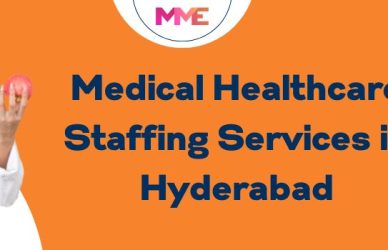Introduction: The Growing Demand for Payroll Services in 2025
In 2025, payroll services have become an integral part of business operations, driven by the need for efficiency, accuracy, and compliance in an increasingly globalized economy. As businesses focus on optimizing their operations, the demand for reliable and sophisticated payroll solutions continues to rise. This growing reliance on payroll services highlights their role in streamlining processes, reducing errors, and ensuring adherence to complex regulations.
Overview of Payroll Services
What Are Payroll Services?
Payroll services involve the management of employee compensation, including calculating salaries, taxes, and benefits, and ensuring timely payments. These services also handle compliance with local labor laws and tax regulations, reducing administrative burdens for businesses.
The Importance of Payroll Services in 2025
As businesses scale and expand across borders, the complexity of managing payroll grows exponentially. In 2025, the importance of payroll services lies in their ability to:
- Ensure accurate and timely employee payments.
- Navigate evolving labor laws and tax requirements.
- Maintain employee satisfaction and trust through seamless compensation management.
- Why Businesses Outsource Payroll Services
- Efficiency and Focus on Core Operations
Outsourcing payroll services allows businesses to focus on their core functions without being bogged down by administrative tasks. Payroll providers offer expertise and technology that streamline operations, saving time and resources.
Compliance Assurance
With ever-changing tax laws and labor regulations, staying compliant is a challenge. Payroll service providers specialize in monitoring and adapting to these changes, ensuring businesses avoid penalties and legal issues.
Cost-Saving Advantages
Managing payroll in-house often requires dedicated resources, including software, personnel, and infrastructure. Outsourcing eliminates these overhead costs, offering a more cost-effective solution with added expertise and reliability.
Trends Influencing Payroll Service Adoption in 2025
Automation and AI Integration
Advanced technologies like automation and AI are revolutionizing payroll services in 2025. These tools enhance accuracy, reduce manual errors, and provide real-time insights, enabling smarter decision-making.
Cross-Border Compliance Needs
As businesses expand globally, cross-border compliance has become a significant challenge. Payroll services now offer solutions tailored to international operations, ensuring compliance with diverse tax systems and labor laws.
Employee Self-Service Platforms
Payroll providers are increasingly offering self-service portals, enabling employees to access their pay slips, tax details, and benefits information seamlessly. This trend enhances transparency and employee satisfaction.

Understanding Payroll Services: What to Expect in 2025
As businesses evolve, so do the expectations from payroll services. In 2025, payroll services have transcended basic salary processing to encompass advanced technological integrations, enhanced compliance measures, and user-centric features. These services are no longer limited to administrative functions but are now strategic enablers for organizations of all sizes.
Core Features of Payroll Services
Salary Calculations and Disbursements
One of the primary functions of payroll services is the accurate calculation and timely disbursement of salaries. These services factor in hours worked, overtime, deductions, and bonuses to ensure precise compensation for employees.
Tax Filing and Compliance
Payroll providers handle tax computations, filings, and reporting, ensuring that businesses comply with local, national, and international tax regulations. They also stay updated with changing tax laws, reducing the risk of penalties.
Employee Benefits Management
In addition to salaries, payroll services manage employee benefits such as health insurance, retirement plans, and allowances. These features help streamline benefit administration and improve employee satisfaction.
Advanced Features
AI Integration for Accuracy and Efficiency
Payroll systems in 2025 leverage artificial intelligence to automate repetitive tasks, enhance accuracy, and minimize human error. AI also provides insights into payroll trends, helping businesses make data-driven decisions.
Predictive Analytics for Strategic Planning
Predictive analytics is transforming payroll management by forecasting labor costs, identifying potential compliance risks, and optimizing resource allocation. These insights allow businesses to stay proactive rather than reactive.
Real-Time Tracking and Reporting
Modern payroll systems offer real-time tracking of salary processing, tax filings, and compliance updates. This feature ensures transparency and allows employers to monitor payroll activities at every stage.
Compliance and Security
Adherence to Global Standards
In 2025, compliance with regulations like GDPR, ISO certifications, and local labor laws is non-negotiable. Payroll providers ensure that businesses meet these standards, safeguarding against legal and financial repercussions.
Data Security and Privacy
With increasing cybersecurity threats, payroll services prioritize data security. Advanced encryption, multi-factor authentication, and secure cloud storage protect sensitive employee and company information.
Audit-Ready Processes
Payroll services also offer audit-ready documentation, ensuring that businesses are always prepared for regulatory checks. This proactive approach minimizes risks and fosters trust among stakeholders.

Key Criteria for Selecting the Best Payroll Service Provider
Choosing the right payroll service provider is a critical decision for businesses, as it directly impacts operational efficiency, employee satisfaction, and compliance. In 2025, payroll providers are expected to offer more than just basic salary processing. They must bring advanced features and adaptability to the table, catering to the unique needs of organizations. Here are the key criteria to consider when selecting the best payroll service provider.
Scalability: Suitability for Small, Medium, and Large Businesses
A reliable payroll service provider must cater to businesses of all sizes. Whether it’s a small startup with a handful of employees or a large enterprise managing a global workforce, the provider should offer solutions that scale with the business. Key aspects of scalability include:
- Flexibility to accommodate growth: The ability to add or remove employees without disrupting processes.
- Global payroll capabilities: For businesses with international operations, cross-border compliance and multi-currency payroll processing are essential.
- Modular features: Services that can expand in functionality as the business grows.
Technology: Integration and Innovation
In today’s digital landscape, technology is a cornerstone of efficient payroll management. The best providers leverage advanced tools to enhance accuracy and streamline processes. Look for:
- Integration with HR systems: Seamless compatibility with existing HR and accounting software ensures a unified workflow.
- AI-driven error reduction: Artificial intelligence identifies discrepancies in payroll data, reducing errors and ensuring compliance.
- Cloud-based solutions: Secure, cloud-enabled platforms for real-time access to payroll data.
- Mobile accessibility: Mobile apps for both employers and employees, offering features like payslip access and leave tracking.
Customization: Tailoring Services to Fit Organizational Needs
Every organization has unique payroll requirements based on its industry, size, and operational structure. A top-tier payroll provider offers customizable solutions that align with these needs.
- Industry-specific features: For example, specialized overtime calculations for manufacturing or shift-based payroll for healthcare.
- Flexible reporting: Customizable reports to provide insights into payroll expenses, tax deductions, and compliance metrics.
- Employee benefits management: Tailored benefits administration that suits diverse organizational policies.
Customer Support: Multilingual and 24/7 Assistance
Efficient customer support is essential to address issues promptly and ensure seamless payroll processing. The best providers offer:
- 24/7 availability: Around-the-clock assistance to resolve time-sensitive queries.
- Multilingual support: Especially important for multinational businesses with diverse teams.
- Dedicated account managers: Personalized support for complex payroll needs.
- Proactive communication: Regular updates on compliance changes and payroll system upgrades.
Cost-Effectiveness: Balancing Affordability and Features
While affordability is a key factor, it’s equally important to assess the value offered by the payroll service. Look for providers that strike a balance between cost and functionality:
- Transparent pricing: Avoid hidden fees by opting for providers with clear pricing structures.
- Feature-rich packages: Ensure the package includes essential features like tax compliance, reporting, and employee self-service portals.
- ROI-focused solutions: Consider how the service will save time, reduce errors, and enhance compliance, ultimately delivering a strong return on investment.
By evaluating payroll service providers against these criteria, businesses can ensure they select a partner that aligns with their operational goals and adapts to their evolving needs.

Top Payroll Services Providers in 2025: A Detailed Comparison
The payroll services landscape in 2025 is more competitive than ever, with providers offering advanced solutions to meet the evolving demands of businesses worldwide. From global scalability to niche offerings for small and medium-sized enterprises (SMEs), these providers leverage cutting-edge technology and robust features to stay ahead. Here’s a detailed comparison of some of the top payroll service providers in 2025.
MME: Global Reach and Compliance Expertise
MME stands out for its global capabilities, making it a preferred choice for multinational corporations.
- Global Reach: MME’s infrastructure spans over 100 countries, offering payroll services tailored to diverse regional requirements.
- Compliance and Risk Management: A core strength of MME is its expertise in international labor laws and tax regulations, minimizing compliance risks for global businesses.
- Scalability: Whether managing payroll for 10 employees or 10,000, MME’s solutions scale seamlessly to support business growth.
- Technology Integration: MME integrates with leading HR and accounting platforms, ensuring smooth data flow across systems.
Paychex: Automation for Small and Medium Enterprises
Paychex has carved its niche by delivering customized payroll solutions tailored for SMEs.
- Automation-Driven Efficiency: Paychex uses AI to automate repetitive tasks such as tax calculations and compliance updates, reducing errors and saving time.
- Custom Solutions: Flexible plans allow SMEs to select services that fit their unique needs, from payroll processing to employee benefits administration.
- Mobile Accessibility: The Paychex mobile app empowers employers and employees to access payroll data, track time, and manage benefits on the go.
- Customer Support: SMEs benefit from 24/7 support and dedicated account managers for a personalized experience.
Gusto: User-Friendly Payroll and Benefits Management
Gusto is celebrated for its intuitive interface and comprehensive employee benefits management.
- User-Friendly Platform: Gusto’s dashboard simplifies payroll tasks, making it accessible even for businesses with limited HR expertise.
- Employee Benefits Management: Gusto offers a range of benefits solutions, including health insurance, retirement plans, and wellness programs.
- Compliance Features: The platform automatically updates with changes in tax laws and labor regulations, ensuring businesses remain compliant.
- Integration: Gusto integrates seamlessly with accounting tools like QuickBooks and Xero, providing a cohesive solution for payroll and financial management.
Rippling: Innovative Integrations with IT and HR Tools
Rippling goes beyond traditional payroll services by integrating IT and HR functionalities into a single platform.
- Unified Platform: Rippling combines payroll with IT management, allowing businesses to handle device provisioning, software access, and payroll from one system.
- Automation Capabilities: The platform automates payroll tasks, including salary calculations and tax filings, reducing the scope for errors.
- Custom Workflows: Rippling’s customizable workflows allow businesses to tailor processes to meet their specific needs.
- Global Payroll: For businesses with international teams, Rippling offers multi-currency payroll and compliance support across multiple countries.
Zenefits: Comprehensive HR and Payroll Suite
Zenefits is a versatile platform that combines payroll with robust HR management tools, making it ideal for businesses seeking an all-in-one solution.
- HR and Payroll Integration: Zenefits integrates payroll with employee onboarding, time tracking, and benefits administration.
- Compliance Assurance: Built-in compliance tools help businesses navigate tax regulations, labor laws, and benefits requirements.
- Employee Self-Service: Employees can access their payslips, manage benefits, and update personal information through an intuitive self-service portal.
- Scalable Plans: Zenefits offers flexible pricing and features to cater to businesses of different sizes and industries.
Other Emerging Players in 2025
While established names dominate the market, several emerging players are gaining traction with innovative solutions:
- Deel: Known for its expertise in managing international payroll and contractor payments, Deel is a favorite among startups and remote-first companies.
- Papaya Global: This provider focuses on global payroll with an emphasis on data analytics and compliance. Its AI-driven platform is tailored for businesses with international teams.
- ADP Run: ADP continues to be a trusted choice for its reliability and extensive suite of payroll and HR solutions, particularly for enterprises.
- Justworks: With a focus on simplifying benefits administration and compliance, Justworks appeals to SMEs looking for an easy-to-use platform.
- TriNet: TriNet specializes in industry-specific payroll solutions, offering tailored features for sectors such as healthcare, retail, and technology.
These providers are shaping the future of payroll services in 2025, offering businesses a range of options to meet their unique needs. Their focus on technology, scalability, and compliance ensures that organizations can manage payroll efficiently while staying competitive in the global market.

Emerging Trends in Payroll Services in 2025
As businesses adapt to technological advancements and a more globalized workforce, payroll services are evolving to meet new demands. In 2025, several emerging trends are shaping how organizations manage payroll. These innovations focus on enhancing accuracy, security, global compliance, and employee satisfaction.
AI and Machine Learning: Enhancing Error-Free Processing and Predictive Capabilities
Artificial Intelligence (AI) and Machine Learning (ML) are revolutionizing payroll by automating complex tasks and reducing human errors.
- Error-Free Processing: AI-powered algorithms detect anomalies in payroll data, ensuring accurate calculations and timely payments.
- Predictive Capabilities: ML enables businesses to forecast labor costs, identify trends, and plan budgets effectively.
- Time-Saving Automation: Tasks such as tax calculations, benefits management, and compliance checks are automated, freeing up HR teams for strategic initiatives.
- AI-driven tools are transforming payroll into a proactive, data-driven function, improving overall efficiency and reliability.
Blockchain in Payroll: Improving Transparency and Security in Transactions
Blockchain technology is emerging as a game-changer in payroll management, offering unparalleled transparency and security.
- Secure Transactions: Blockchain ensures tamper-proof records of salary payments, tax filings, and benefits disbursements.
- Transparent Audits: Employers and employees can access immutable records, enhancing trust and simplifying audits.
- Cryptocurrency Payments: Some businesses are exploring blockchain-based payroll systems to facilitate payments in cryptocurrencies, catering to global teams.
This technology is particularly beneficial for cross-border payments, reducing transaction costs and ensuring compliance.
Cross-Border Payroll Management: Addressing Challenges of Global Workforce Payment
With businesses increasingly hiring talent across borders, managing global payroll is a significant focus in 2025.
- Multi-Currency Support: Payroll providers offer solutions that handle payments in various currencies, eliminating conversion issues.
- Local Compliance: Advanced systems ensure adherence to labor laws, tax regulations, and reporting requirements in multiple jurisdictions.
- Consolidated Reporting: Employers can access unified reports for their global workforce, simplifying payroll oversight.
These innovations address the complexities of cross-border payroll, enabling businesses to manage international teams seamlessly.
Employee Self-Service Portals: Empowering Employees with Greater Control
Employee self-service portals are gaining prominence as they enhance transparency and employee satisfaction.
- On-Demand Access: Employees can view payslips, tax documents, and benefits details at their convenience.
- Streamlined Queries: Portals allow employees to resolve payroll-related queries without HR intervention, saving time for both parties.
- Customizable Features: Advanced systems offer tools for updating personal details, managing deductions, and even simulating tax savings.
These portals empower employees by giving them greater control over payroll-related activities while reducing administrative workloads for employers.

Case Studies: Success Stories with Leading Payroll Providers
The effectiveness of payroll service providers is best demonstrated through real-world success stories. Businesses across industries have benefited from innovative payroll solutions tailored to their unique needs. Below are three case studies showcasing how leading payroll providers have transformed payroll management for their clients.
Case 1: A Multinational Adopting ADP for Seamless Global Payroll
A global retail chain with operations in over 50 countries faced significant challenges managing payroll across different jurisdictions. Complex tax regulations, varying compliance requirements, and multiple currencies created inefficiencies and compliance risks.
The Solution: The company adopted ADP’s global payroll solution, which offered centralized management and country-specific compliance support.
Key Benefits:
- Consolidated payroll processing for over 15,000 employees across multiple regions.
- Automated compliance updates for local tax laws and labor regulations.
- Multi-currency payroll with accurate exchange rate calculations.
Results: The company achieved a 30% reduction in payroll processing time and significantly improved compliance accuracy, avoiding costly penalties.
Case 2: An SME Leveraging Gusto for Cost-Effective Payroll and Benefits
A small marketing agency with 50 employees needed an affordable yet robust payroll solution. Manual processes were time-consuming and prone to errors, and the agency also wanted to enhance employee satisfaction by offering better benefits.
The Solution: Gusto provided the agency with a cost-effective payroll and benefits management platform.
Key Benefits:
- Automated payroll processing with error-free calculations.
- Access to affordable employee benefits, including health insurance and retirement plans.
- A user-friendly dashboard for both HR and employees.
Results: The agency reduced payroll errors by 95% and improved employee retention by offering competitive benefits, all while staying within budget.
Case 3: A Tech Startup Using Rippling for Comprehensive IT and Payroll Integration
A rapidly growing tech startup with a distributed workforce needed a payroll solution that could integrate seamlessly with its IT infrastructure. Managing employee devices, software access, and payroll simultaneously was becoming increasingly complex.
The Solution: Rippling provided a unified platform for IT and payroll management.
Key Benefits:
- Automated device provisioning and software onboarding alongside payroll processing.
- Real-time insights into labor costs and compliance status.
- Custom workflows for different departments and employee roles.
Results: The startup streamlined IT and payroll processes, reducing onboarding time by 50% and ensuring accurate payroll for its remote workforce.
These case studies highlight how the right payroll provider can address specific challenges, optimize operations, and drive business success.

How Payroll Services Are Shaping Business Operations in 2025
In 2025, payroll services have evolved into a vital component of business operations, driving efficiency, compliance, and employee satisfaction. With advancements in technology and increasing regulatory complexities, businesses are leveraging payroll services to stay competitive and focus on strategic growth. Here’s how payroll services are transforming business operations.
Boosting Operational Efficiency: The Role of Automation and Process Simplification
Payroll services in 2025 are heavily reliant on automation to streamline processes and reduce administrative burdens.
- Automation Benefits: Tasks like salary calculations, tax deductions, and benefits management are automated, ensuring speed and accuracy.
- Process Simplification: Payroll providers integrate with HR and accounting systems, creating a unified workflow that eliminates manual intervention.
- Scalability: Businesses can seamlessly expand their operations with scalable payroll solutions, accommodating workforce growth without additional strain on resources.
By simplifying payroll management, businesses save time and focus on core operations, boosting overall efficiency.
Ensuring Compliance: Navigating Complex Regulations
Regulatory compliance remains a significant challenge for businesses, especially those with international operations. Payroll services ensure businesses stay on the right side of the law.
- Local and Global Compliance: Providers monitor and adapt to changing tax laws, labor regulations, and reporting requirements in multiple jurisdictions.
- Proactive Updates: Businesses receive timely updates about regulatory changes, minimizing the risk of non-compliance.
- Audit Preparedness: Payroll services maintain accurate records and provide audit-ready documentation, ensuring businesses are prepared for inspections.
Compliance support not only reduces legal risks but also fosters trust among stakeholders.
Enhancing Employee Satisfaction: Timely Payments and Self-Service Portals
A satisfied workforce is a cornerstone of business success, and payroll services play a critical role in achieving this.
- Timely and Accurate Payments: Ensuring that employees are paid on time, with accurate calculations, builds trust and boosts morale.
- Self-Service Portals: Modern payroll systems provide employees with access to payslips, tax documents, and benefits information, empowering them to manage their payroll-related queries independently.
- Customizable Benefits: Payroll services enable businesses to offer tailored benefits packages, enhancing employee engagement and retention.
By addressing employee needs efficiently, payroll services contribute to a more motivated and productive workforce.
Reducing Errors and Risks: Leveraging Technology
Errors in payroll can lead to financial losses, compliance violations, and employee dissatisfaction. Advanced payroll technologies are reducing these risks significantly.
- Error Detection and Prevention: AI-powered systems flag discrepancies in payroll data, ensuring accurate calculations and reporting.
- Data Security: Robust encryption and secure cloud storage protect sensitive payroll information from breaches and cyber threats.
- Risk Mitigation: By automating compliance checks and payroll processes, providers minimize the risk of penalties and lawsuits.
These technologies not only enhance accuracy but also build confidence in payroll management among businesses and employees alike.
Payroll services are no longer just an administrative tool; they are a strategic asset that drives efficiency, ensures compliance, and supports employee satisfaction, shaping business operations in 2025 for long-term success.

The Future of Payroll Services Beyond 2025
As businesses continue to innovate and adapt, the future of payroll services is set to evolve dramatically. Beyond 2025, payroll services will harness advanced technologies, cater to changing customer expectations, embrace sustainability, and adapt to the needs of a globalized workforce. Here’s a look at the trends shaping the future of payroll services.
Integration with Emerging Technologies: AI, Blockchain, and IoT in Payroll
Technological advancements will redefine how payroll services operate, ensuring greater efficiency and security.
- AI and Machine Learning: AI will advance predictive analytics, enabling payroll systems to forecast trends, optimize resource allocation, and detect anomalies in real-time.
- Blockchain: Blockchain technology will enhance transparency and security in payroll transactions, ensuring tamper-proof records and enabling seamless cross-border payments.
- IoT Integration: IoT devices will track employee attendance and productivity in real-time, automating data collection for payroll processing.
These technologies will not only streamline payroll management but also reduce errors and enhance trust in the system.
Evolving Customer Expectations: Personalization and Greater Data Insights
As customers demand more tailored solutions, payroll services will evolve to offer:
- Personalization: Businesses will expect customized payroll solutions that cater to specific industries, employee demographics, and organizational needs.
- Data-Driven Insights: Advanced analytics will provide deeper insights into labor costs, compliance risks, and employee satisfaction, empowering businesses to make informed decisions.
- Real-Time Access: Employers and employees will benefit from instant access to payroll data, enhancing transparency and decision-making capabilities.
Meeting these expectations will require payroll providers to focus on flexibility, agility, and user-centric designs.
Sustainability in Payroll Services: Eco-Friendly Digital Transformation Initiatives
Sustainability will become a core focus for payroll providers as businesses prioritize eco-friendly practices.
- Paperless Processes: Digital payslips, automated tax filings, and cloud-based systems will reduce the need for paper and physical storage.
- Energy Efficiency: Payroll platforms will adopt energy-efficient technologies and data centers to minimize their environmental footprint.
- Corporate Social Responsibility (CSR): Providers will align their operations with global sustainability goals, contributing to greener business ecosystems.
These initiatives will appeal to environmentally conscious businesses and employees alike.
Globalization of Payroll: Meeting the Needs of an Increasingly Mobile and Remote Workforce
The globalization of workforces will drive demand for payroll solutions that cater to remote and mobile employees.
- Cross-Border Compliance: Providers will offer enhanced support for multi-jurisdictional compliance, handling diverse tax laws and labor regulations.
- Multi-Currency Payroll: Seamless payroll solutions will manage multi-currency transactions for distributed teams.
- Mobility Solutions: Payroll platforms will integrate with relocation and visa management services, simplifying processes for global employees.
These advancements will ensure payroll services remain a critical enabler of global workforce management.

Conclusion: Choosing the Best Payroll Services Provider for 2025
Summarizing Key Insights
Selecting the right payroll service provider in 2025 is no longer just about handling salaries; it’s about aligning payroll solutions with your business goals. From scalability and compliance to advanced features like AI integration and self-service portals, the ideal provider must cater to your specific operational needs. Businesses must evaluate providers based on their ability to streamline processes, enhance employee satisfaction, and ensure regulatory compliance across regions.
Encouragement to Innovate
As technology continues to redefine the payroll landscape, embracing innovation is essential. Automation, AI-driven analytics, and blockchain technology offer unprecedented accuracy, efficiency, and security. Staying ahead in a competitive market requires businesses to adopt these advancements to simplify payroll management while gaining actionable insights for strategic decision-making. By partnering with technologically advanced providers, companies can future-proof their payroll operations and remain agile in an evolving global economy.
Call to Action
The payroll provider you choose can significantly impact your business’s operational efficiency and growth trajectory. Explore leading payroll service providers that align with your organizational requirements and embrace their expertise to navigate complexities like compliance, multi-jurisdictional payroll, and employee engagement. Take the next step today—invest in a reliable payroll service provider to streamline operations, enhance compliance, and drive business success in 2025 and beyond.




